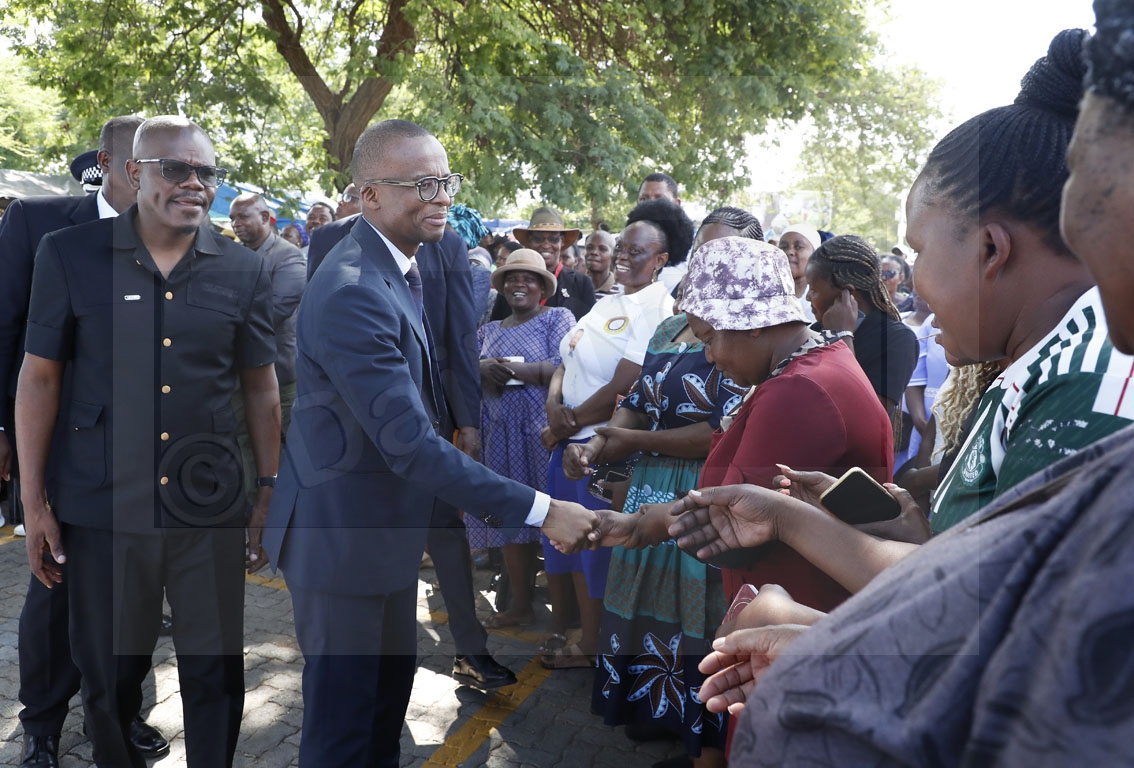How the economy performed in 2023
17 Dec 2023
Beyond intense negotiations, 2023 birthed a strategic U-turn which saw government reaching a new sales agreement with De Beers Group, which will run for the next 10 years.
This by far proved to be the biggest milestone achievement for Botswana across its economic mainstay, with the mining licences for Debswana mines renewed and running for a further 25 years from 2029 until 2054.
The outcome of the agreement was the increase of government’s entitlement, through the Okavango Diamond Company, in the Debswana production, from 25% to 50%.
This was envisaged to fast-track the cutting, polishing and manufacturing of jewellery, locally, thereby, ensuring provenance and branding of diamonds.
In addition, the agreement would also result in Botswana receiving P1 billion each year for 10 years, which would be deposited into the Diamond Development Fund, and would accumulate to P10 billion and be invested in local projects.
To the latter, a number of sightholder companies came forth to provide exceptional skills transfer and training in the processing of diamonds among young people, something that is expected to see Batswana benefiting from the diamonds value chain.
In line with this development, government further stirred market-oriented economic policies to support growth while attempting to diversify the economy away from diamond mining. This, however, proved fairly challenging due to Botswana’s small domestic market, substantial skills gap, and volatile business cycle.
The economic growth slowed in 2023, owing largely to the impact of monetary tightening by the central bank, with marginal support provided by the agricultural sector.
Notably, hopes for growth acceleration throughout 2024-27 remain, particularly driven by the services and mining sectors.
The year saw Botswana being ranked sixth out of 28 countries in the Absa Africa Financial Markets Index, making the country suitable to attract both local and foreign direct investment.
The Absa Africa Financial Markets Index is a valuable tool for measuring the state and robustness of financial markets across African countries.
The Minister of Finance, Ms Peggy Serame said the index provided insights on development and integration of financial markets across Africa, adding that it was essential to have a comprehensive understanding of the progress being made in this area, as financial markets played a critical role in promoting economic growth and development.
The negative impact of COVID-19 on the economy has been easing in recent months with a slight shift in economic growth.
Significant decisions were made by the Monetary Policy Committee (MPC) to maintain inflation within the objective range of three to six percent, from an average of 12.2 in 2022.
This saw the upward adjustments in administered prices and associated second-round effects contributing to high inflation, as stipulated in the October 2023 BoB Household Indebtedness Survey Report.
The Monetary Policy Rate (MoPR) was, therefore, increased by a cumulative 151 basis points to 2.65 percent in 2022 to anchor expectations for the desired low levels of inflation across 2023.
Towards economic diversification, Botswana took an over-drive mode to establish itself as the destination of choice for hosting Meetings, Incentives, Conferences and Exhibitions (MICE).
As a result, numerous events hosted thousands of international participants across the country through strategic conferences bringing diversity of spin-offs for several sectors including hotel and hospitality, retail and transport.
This year had a total export commodities largely from the mineral sector, particularly diamonds, copper-nickel, and silver, all of which accounted for 92% of total exports contribution.
The government’s decision to restrict the importation of selected vegetables and fruits in 2022 started bearing fruits across 2023, with a decline of the fresh produce import bill from P634 million in 2018 to P183 million in 2023.
The ISPAAD programme came to an end and was replaced by Temo Letlotlo initiative, which
will effect during the 2023/24 ploughing season.
With this programme, the government aims to sustainably improve food security in the country, through two components being household food security and national food security.
The household security component was set to assist micro scale farmers with 100% subsidy and it targeted the farming population with no wage or monthly income of up to P2,500, whereas, the national food security component targeted small, medium and large scale individual farmers, as well as groups and clusters.
Furthermore, the year saw a total of 1 750 dairy cattle female sexed semen being purchased and 1 000 of them have been sold to dairy farmers.
In respect of conventional semen, 500 straws were purchased, out of which 100 were sold to dairy farmers. Moreover, the year saw government committing to importing 162 breeding live beef, of which 141 were bulls and 21 heifers.
These were bought to improve the country’s genetic quality and ultimately increase the national herd.
Upon negotiations concluded in September 2022, the year 2023 saw government raising a
budget support loan of approximately US$100 million from the Organisation of the
Petroleum Exporting Countries (OPEC) Fund. The loan has been solicited to support government’s Programmatic Economic Resilience and Green Recovery Programme.
According to the Minister of Finance, the overall objective of this budget support loan was to
fund government’s efforts through the strengthening of its pandemic and crisis response, addressing the regulatory constraints for private sector recovery as well as building the foundations for a sustainable green economy.
Toward local developments, new funds investment rules were launched and excited the
pension industry. PFR2 as commonly known, this rules would effectively result in the increase of the pensions’ domestic investment limit to 50% of total asset value over a five-year period.
Across the energy sector, government entered into a 30-year strategic agreement with an independent power producer, Jindal Energy Botswana for a 300 Megawatts Power Plan, with scope to expand to 600 Megawatts.
The agreement entailed the opening of a new coal mine and power station in Mmamabula and the ground-breaking ceremony was conducted on October 6. ENDS
Source : BOPA
Author : Marvin Motlhabane
Location : GABORONE
Event : The year that was 2023
Date : 17 Dec 2023




